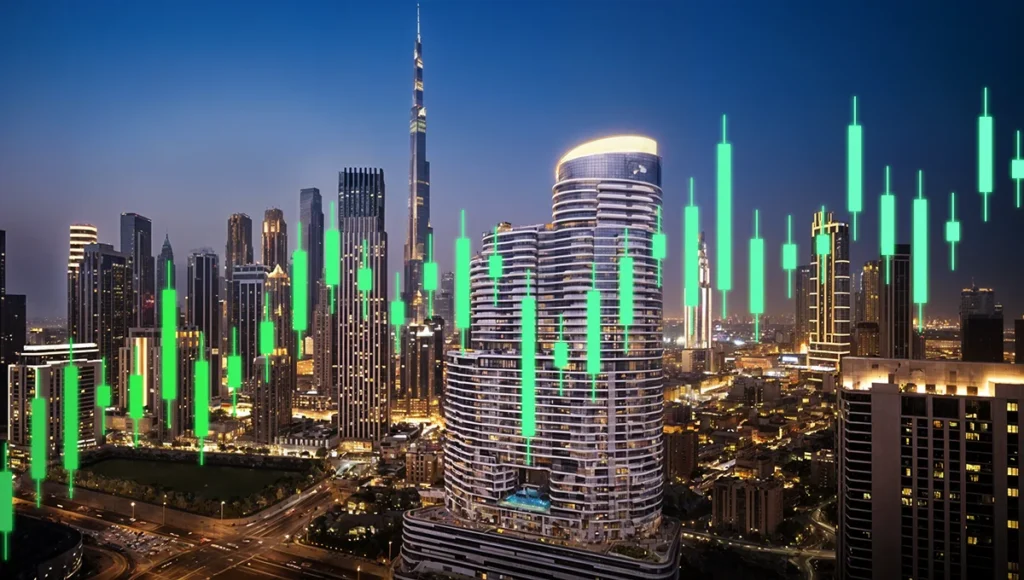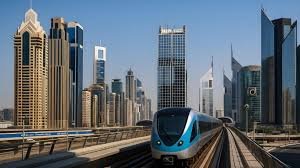
Dubai real estate market has always been a magnet for global investors, homeowners, and renters. From towering skyscrapers to luxurious villas, the city offers a spectrum of properties that cater to diverse lifestyles and budgets. But if you are thinking of investing or renting in Dubai, understanding the current price trends is no longer optional—it’s essential.
In this article, we’ll explore the latest Dubai real estate price movements, the factors driving these trends, and what it means for buyers, renters, and investors in 2025.
Over the past decade, Dubai’s property market has seen remarkable shifts. From the rapid growth pre-2008 to the slump following the global financial crisis, and now a period of resurgence, the city continues to reinvent itself.
The recovery phase after 2020 was marked by a surge in demand, driven by low-interest rates, attractive payment plans, and government initiatives that made property ownership easier for foreigners. Dubai’s resilience has turned it into one of the most stable real estate markets in the Middle East, attracting global attention.
Dubai’s property prices have been showing dynamic movements in 2025. Understanding these trends is key for anyone planning to invest, buy, or rent.
1. Villa Prices on the Rise
Luxury villas in prime locations like Palm Jumeirah, Emirates Hills, and Dubai Hills Estate have seen steady appreciation. Limited inventory combined with high demand for spacious family homes is driving prices upward.
2. Apartment Prices Stabilizing
High-rise apartments in Downtown Dubai, Business Bay, and Dubai Marina are witnessing price stabilization. Some areas have seen modest price increases, while others are offering attractive discounts to capture buyers’ attention.
3. Off-Plan Projects Gaining Traction
Investors are increasingly interested in off-plan properties due to flexible payment plans and the potential for future capital gains. Communities like Dubai South and Mohammed Bin Rashid City are particularly popular for these projects.

Several key factors are shaping Dubai’s real estate market today:
Economic Growth – Dubai’s economy is rebounding, supported by tourism, trade, and a growing tech sector, which boosts demand for both residential and commercial properties.
Foreign Investment – Relaxed visa policies and incentives for foreign investors are increasing the inflow of capital into real estate, pushing prices higher.
Supply and Demand – While the city has a considerable number of new projects, demand for premium locations often outstrips supply, keeping property values strong.
Government Initiatives – Laws promoting real estate ownership for foreigners, long-term visas, and new infrastructure projects continue to make Dubai an attractive destination.
Understanding which areas are hot and which are cooling off can help you make smarter decisions.
Downtown Dubai – Apartment prices remain strong due to high demand for luxury residences near the Burj Khalifa and Dubai Mall.
Dubai Marina – Popular among expats and investors, the area sees stable rental yields and moderate price increases.
Palm Jumeirah – Villas and apartments continue to command premium prices due to exclusivity and waterfront views.
Dubai South – Off-plan residential projects are emerging as affordable alternatives with long-term investment potential.
Jumeirah Village Circle – This area offers competitive prices for families and tenants looking for mid-range apartments and villas.
Property prices are just one side of the coin. Rental trends also reveal significant insights into market health.
1. Increasing Rents in Prime Areas
High-demand neighborhoods such as Downtown Dubai, Palm Jumeirah, and Business Bay are witnessing steady rent hikes.
2. Affordable Options in Emerging Communities
Communities like Dubai South and Jumeirah Village Circle offer lower rents with modern amenities, attracting long-term tenants.
3. Luxury Rentals in Demand
Luxury villas with private pools, sea views, and smart home features are increasingly popular among expatriates and high-net-worth individuals.
Dubai’s real estate market isn’t just for buying a home—it’s a playground for investors seeking lucrative returns. Here’s what you need to know:
High Rental Yields – Certain areas like International City and Discovery Gardens offer competitive rental yields, attracting budget-conscious investors.
Capital Appreciation Potential – Prime locations continue to show robust long-term value appreciation. Off-plan properties can also offer significant gains once completed.
Diversification Opportunities – Dubai provides options across residential, commercial, and hospitality sectors, giving investors flexibility in portfolio diversification.
Government Stability – The UAE government’s focus on real estate regulations and investor protection ensures a safer investment environment.

Navigating Dubai’s real estate market requires strategy and insight.
1. Research Local Trends – Keep track of property prices, rental rates, and upcoming developments in your preferred area.
2. Consider Off-Plan Projects – These often provide flexible payment plans and opportunities for future appreciation.
3. Factor in Community Amenities – Proximity to schools, malls, transport, and leisure facilities can significantly influence property value.
4. Plan for Long-Term – Dubai’s market can fluctuate, so think beyond immediate gains and focus on sustainable growth.
5. Consult Experts – Working with local real estate brokers or property consultants can provide insights you might miss on your own.
Looking ahead, Dubai’s real estate market is expected to remain resilient, supported by strong infrastructure development, government initiatives, and continuous foreign investment.
Emerging trends to watch include smart homes, sustainable developments, and integrated communities that offer both luxury and convenience. Investors are likely to benefit from long-term capital appreciation, while renters will have more diverse options to choose from.
Dubai’s real estate market is dynamic and full of opportunity. Whether you are an investor seeking high rental yields, a buyer looking for a dream home, or a tenant searching for affordable rentals, understanding price trends is crucial.
By keeping an eye on area-wise growth, rental trends, and emerging projects, you can make informed decisions that maximize value while minimizing risks. Dubai’s property market is not just a snapshot of the present—it’s a glimpse into a city that constantly evolves and offers rewarding opportunities for those who understand its pulse.
Do Follow Estate Magazine on Instagram
